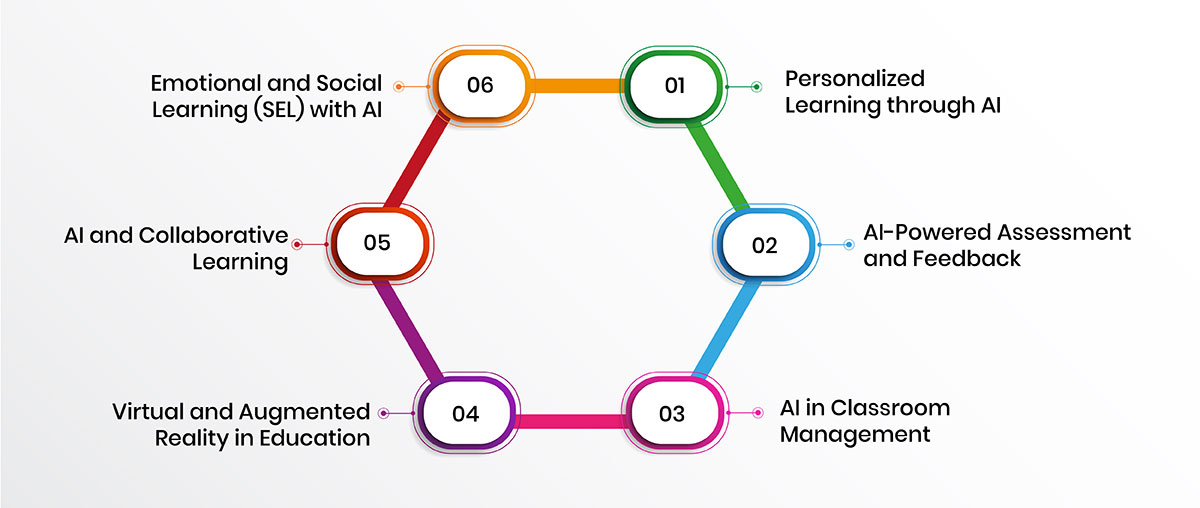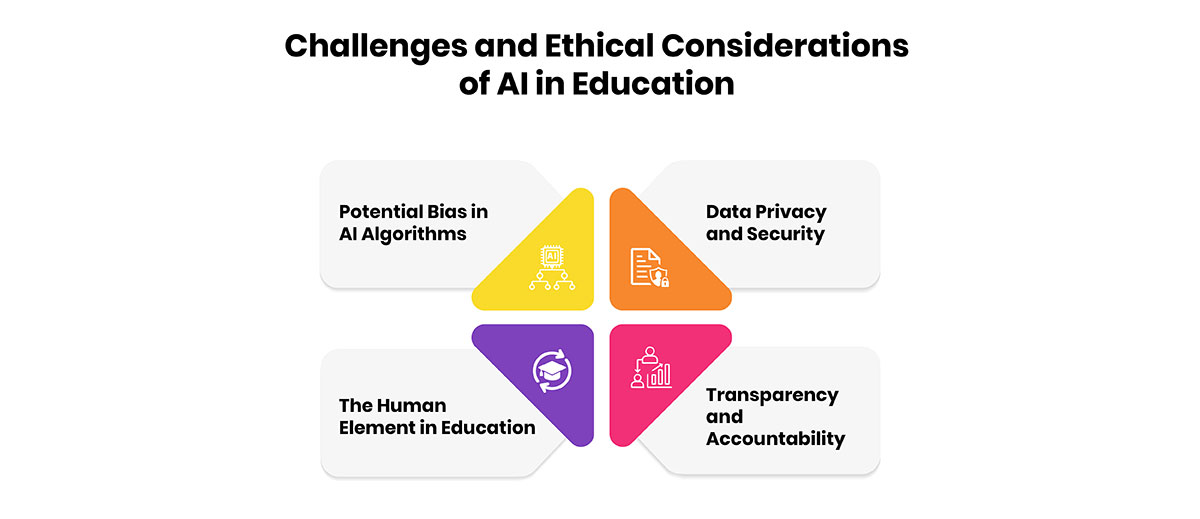Education 4.0: Transforming Learning with AI
September 10, 2024Education is undergoing a significant shift as traditional classroom models are being redefined by Education 4.0. This modern educational framework emphasizes personalized learning, adaptability, and the integration of advanced technologies to enhance the overall learning experience. At the heart of this transformation is artificial intelligence (AI), which is set to revolutionize the way education is both delivered and received.
Despite AI's compelling promise in education, it must be adopted responsibly to ensure equitable access to quality education. The World Economic Forum emphasizes the need for significant educational changes to align with the Fourth Industrial Revolution. By integrating AI within the Education 4.0 framework, we can accelerate these transformations and prepare learners for a future where technological proficiency is essential.
The Transformative Learning with AI
AI is revolutionizing education by transforming present learning models into more dynamic and personalized experiences. As we embrace AI in education, we are not only improving current practices but also preparing students for a future where technological proficiency is key.
Let’s look into few major shifts by AI in the era of education 4.0:

-
1. Personalized Learning through AI
The traditional education system struggles with a one-size-fits-all approach, often failing to meet individual learning needs. AI revolutionizes this by customizing learning experiences based on student data, adapting content to fit unique learning styles and paces. While personalized tutoring significantly boosts academic performance, scaling this for all students has been challenging. AI offers a scalable solution, using intelligent algorithms to analyze student interactions and progress (Intelligent Tutoring Systems), providing adaptive support (Adaptive Learning Platforms). This inclusivity benefits neurodiverse students and those with varying physical abilities, ensuring equal opportunities for all. -
2. AI-Powered Assessment and Feedback
AI-powered assessment and feedback revolutionize education with real-time, personalized, and objective evaluations. Unlike traditional methods, AI tools provide instant, tailored feedback, identifying knowledge gaps and offering targeted recommendations. This ensures relevant and actionable insights for students. Additionally, AI delivers consistent, unbiased grading and manages large-scale assessments with precision. Advanced analytics provide educators with deep insights into student progress, informing instructional strategies. Adaptive testing, adjusting question difficulty based on performance, keeps students engaged and accurately measures their abilities. -
3. AI in Classroom Management
AI technologies like Machine Learning and Deep Learning are increasingly used to monitor and enhance classroom environments. AI automates administrative tasks such as attendance, assignment scheduling, and grading, freeing teachers to focus on instruction. For instance, facial recognition can track attendance, and AI tools can manage digital assignments for prompt feedback. Beyond administration, AI analyzes student engagement and performance data, helping teachers identify struggling students and adjust their teaching methods. It also supports personalized learning by recommending customized resources and activities, creating a more inclusive and effective educational experience. -
4. Virtual and Augmented Reality in Education
Virtual and augmented reality (VR and AR) are transforming education by offering immersive and interactive learning experiences. VR creates a fully immersive 360-degree environment, allowing students to explore historical events and scientific phenomena in a dynamic way. AR overlays digital content onto the real world, enhancing interaction with 3D models and simulations. Both technologies improve engagement and accessibility, particularly for students with varying learning styles and short attention spans. -
5. AI and Collaborative Learning
AI is revolutionizing collaborative learning by enhancing group work with intelligent support. AI tools analyze group dynamics and individual inputs to optimize team performance, suggest effective groupings, and automate routine tasks like scheduling. These technologies provide real-time feedback and personalized recommendations, improving communication and problem-solving. By streamlining administrative aspects, AI allows students to focus on the core of their collaborative projects, making teamwork more efficient and engaging. -
6. Emotional and Social Learning (SEL) with AI
AI enhances Emotional and Social Learning (SEL) by analyzing students' emotional states through facial expressions and voice tones, allowing for timely support from educators. It personalizes SEL interventions based on individual needs and offers virtual SEL coaching through chatbots. AI also provides valuable insights into students' emotional development, helping educators adjust their teaching strategies effectively.
Challenges and Ethical Considerations of AI in Education
The integration of AI in education brings both promising advancements and significant challenges. Let’s explore them to cultivate the practice of responsible AI use.

-
Potential Bias in AI Algorithms
One primary concern is the potential for bias in AI algorithms. If the data used to train these systems reflect existing biases, the AI may inadvertently perpetuate or even exacerbate inequalities. This could affect decisions about student performance, placement, and opportunities, leading to unfair treatment of certain groups. Ensuring conscientious oversight in the implementation of AI is crucial to mitigate these risks. -
Data Privacy and Security
Privacy is another critical issue. AI systems often require vast amounts of personal data to function effectively, raising concerns about how this data is collected, stored, and used. Ensuring the privacy and security of student information is paramount to prevent misuse and unauthorized access. Educational institutions must adopt robust data protection measures to safeguard sensitive information. -
The Human Element in Education
Furthermore, the over-reliance on AI can diminish the human element in education. While AI can provide personalized learning experiences, it lacks the empathy, intuition, and moral judgment that human educators bring to the classroom. This raises questions about the role of teachers and the potential devaluation of human interaction in learning environments. Balancing AI integration with human touch is essential to maintain a holistic educational experience. -
Transparency and Accountability
Ethical considerations also extend to the transparency and accountability of AI systems. It is essential that educators and administrators understand how AI decisions are made and can challenge or appeal those decisions. This transparency is crucial for maintaining trust in AI systems and ensuring they are used responsibly. Transparent and accountable practices are necessary to uphold the integrity of AI applications in education.
AI for Teacher Support and Professional Development
AI is revolutionizing the educational landscape, not only by enhancing student learning but also by providing significant support for teachers and contributing to their professional development.
-
Enhancing Teaching Efficiency
AI can take over routine administrative tasks, such as grading assignments, tracking attendance, and managing schedules, allowing teachers to focus more on instruction and student engagement. By automating these time-consuming duties, AI helps reduce teacher burnout and increases their productivity. This efficiency enables teachers to devote more time to creating innovative lesson plans, engaging with students, and fostering a positive learning environment. -
Personalized Professional Development
AI-driven platforms offer personalized professional development opportunities for teachers. These systems can analyze individual teaching styles, strengths, and areas for improvement, and then recommend specialized training programs and resources. By providing targeted feedback and continuous learning opportunities, AI ensures that teachers can enhance their skills and stay updated with the latest educational trends and methodologies. -
Real-Time Feedback and Insights
AI tools can offer real-time feedback on teaching practices by analyzing classroom interactions and student responses. For example, AI can provide insights into which teaching methods are most effective, identify patterns in student performance, and suggest adjustments to improve learning outcomes. This data-driven approach enables teachers to make informed decisions and adapt their strategies to better meet the needs of their students. -
Collaborative Learning and Resource Sharing
AI platforms facilitate collaborative learning and resource sharing among educators. Teachers can access a vast repository of teaching materials, lesson plans, and best practices shared by their peers worldwide. AI can also connect teachers with similar interests or challenges, fostering a community of practice where they can collaborate, share experiences, and support each other's professional growth.
Conclusion
The integration of AI into education represents a transformative leap toward more personalized, efficient, and immersive learning experiences, aligning with the vision of Education 4.0. As AI reshapes teaching and learning, it opens up new opportunities for enhancing educational outcomes and addressing diverse needs. However, balancing these advancements with ethical considerations and maintaining the human touch in education is essential to ensure that AI’s benefits are equitably distributed. By addressing these challenges thoughtfully, we can harness AI’s full potential to create a more dynamic and inclusive educational landscape.




